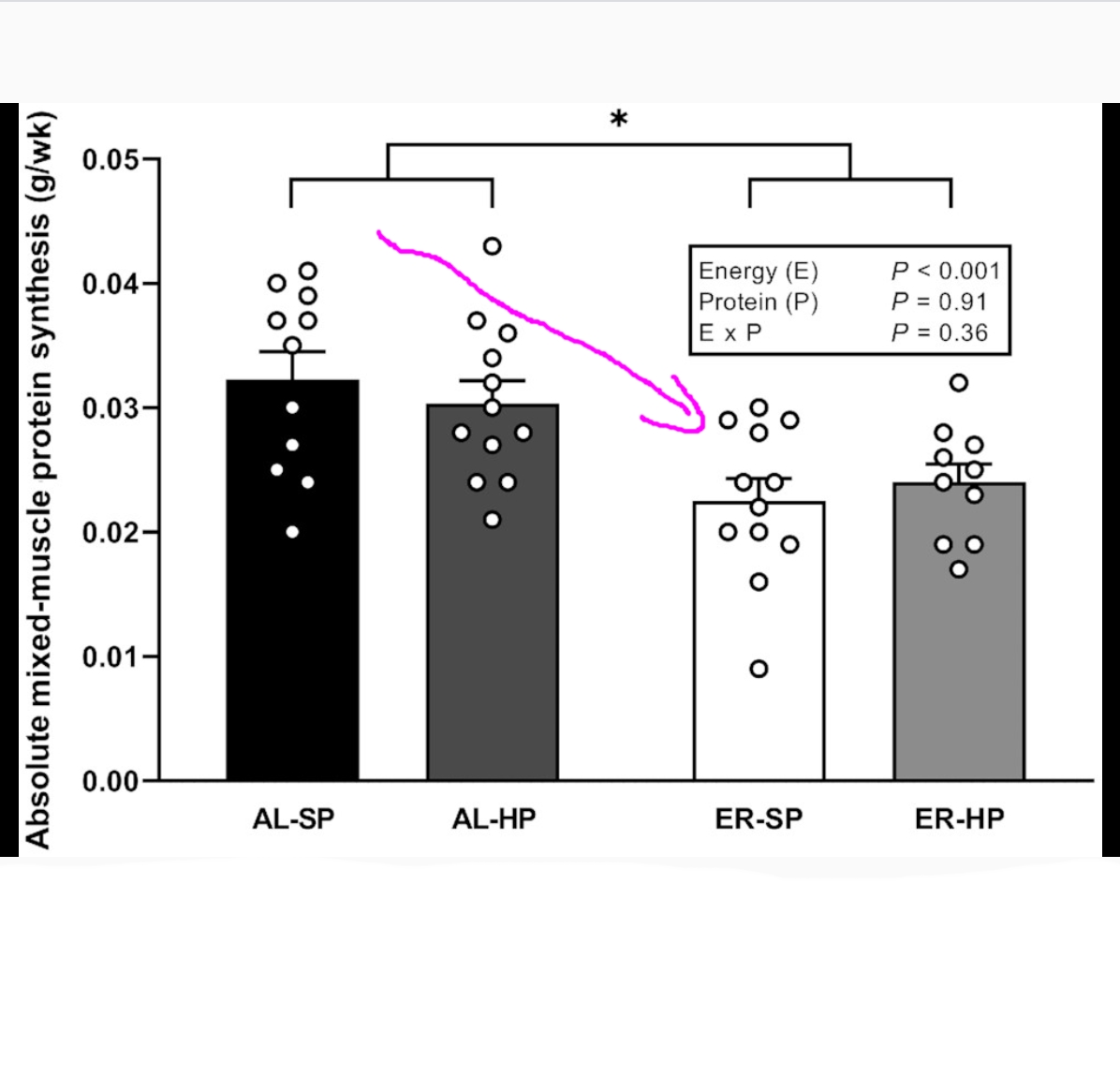Energy Restriction Suppresses Muscle Protein Synthesis, and High Protein Diets Extend Protein Half-Lives Across the Muscle Proteome in Obese Female Zucker Rats
Alyssa N Varanoske The Journal of Nutrition, Volume 151, Issue 9, September 2021, Pages 2551–2563,
Background
Effects of high protein (HP) diets and prolonged energy restriction (ER) on integrated muscle protein kinetics have not been determined.
Objective
The objective of this study was to measure protein kinetics in response to prolonged ER and HP on muscle protein synthesis (MPS; absolute rates of synthesis) and muscle protein breakdown (MPB; half-lives) for proteins across the muscle proteome.
Methods
Female 6-wk-old obese Zucker rats (Leprfa+/fa+, n = 48) were randomly assigned to one of four diets for 10 wk: ad libitum-standard protein (AL-SP; 15% kcal from protein), AL-HP (35% kcal from protein), ER-SP, and ER-HP (both fed 60% feed consumed by AL-SP). During week 10, heavy/deuterated water (2H2O) was administered by intraperitoneal injection, and isotopic steady-state was maintained via 2H2O in drinking water. Rats were euthanized after 1 wk, and mixed-MPS as well as fractional replacement rate (FRR), relative concentrations, and half-lives of individual muscle proteins were quantified in the gastrocnemius. Data were analyzed using 2-factor (energy × protein) ANOVAs and 2-tailed t-tests or binomial tests as appropriate.
Results
Absolute MPS was lower in ER than AL for mixed-MPS (–29.6%; P < 0.001) and MPS of most proteins measured [23/26 myofibrillar, 48/60 cytoplasmic, and 46/60 mitochondrial (P < 0.05)], corresponding with lower gastrocnemius mass in ER compared with AL (–29.4%; P < 0.001). Although mixed-muscle protein half-life was not different between groups, prolonged half-lives were observed for most individual proteins in HP compared with SP in ER and AL (P < 0.001), corresponding with greater gastrocnemius mass in HP than SP (+5.3%; P = 0.043).
Conclusions
ER decreased absolute bulk MPS and most individual MPS rates compared with AL, and HP prolonged half-lives of most proteins across the proteome. These data suggest that HP, independent of energy intake, may reduce MPB, and reductions in MPS may contribute to lower gastrocnemius mass during ER by reducing protein deposition in obese female Zucker rats.














